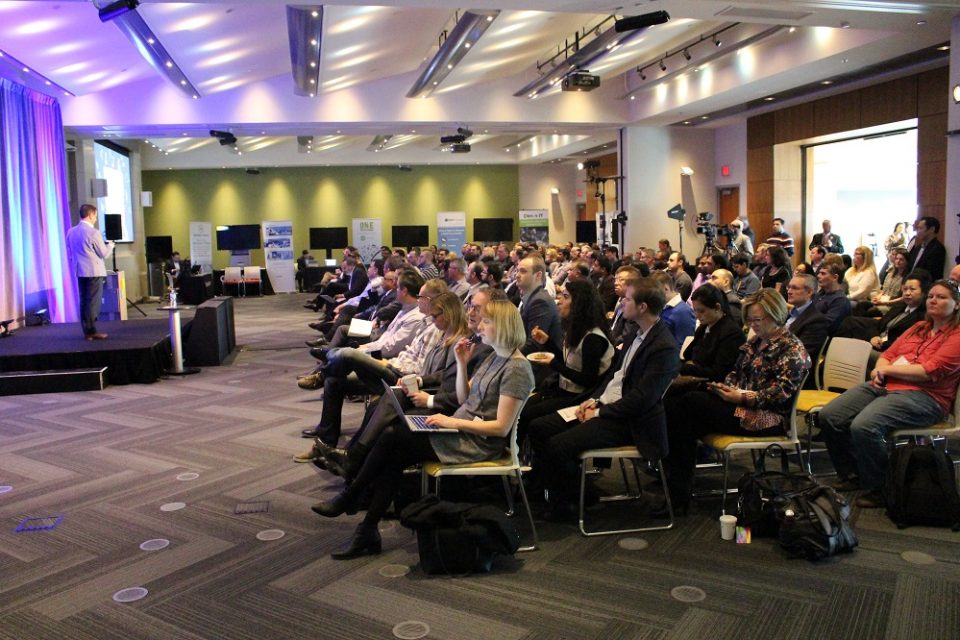Cities are growing faster than ever and, globally, are expected to increase 66 per cent by 2050. Given this surge, current municipal infrastructures and services are having a hard time keeping up, struggling with how to do it and where to begin.
To help cities tackle tomorrow’s urban challenges – and secure the funding offered by Canadian government through their smart cities challenge – Microsoft Canada hosted government officials and industry leaders to help action smart city ideas and demonstrate how technological innovation can help solve complex issues and create new business models.
“Rising citizen expectations are driving the need for modern engagement approaches that are focused on citizens as clients. As a result, many leading governments organizations are now reinventing their consultation processes for a mobile-first, cloud-first world. They are shifting from manual processes to digital automation, from being process-organizations to being service providers,” shared Kevin Peesker, President, Microsoft Canada.
According to Frank Di Palma, CIO, City of Vaughn, “Smart is not waiting for smart to happen. Working with partners such as Microsoft, cities are getting smarter with their products and services by making the right technology partner choices.”
Microsoft believes that its important for a government to think and operate according to four pillars to become more productive and digitally transformed:
Engaging citizens: Transformation starts with citizens and in the digital age they are savvier than ever before. Microsoft cloud enables government agencies to provide service, communication and citizen engagement applications to thousands of citizens on their preferred device. These flexible, integrated and trustworthy cloud technologies provide government agencies with a scalable and low-cost platform to deliver high performing, high availability web services, portals, apps and social media connections while helping to reduce hosting, data storage, security and management costs.
Empowering employees: Governments need collaboration services that span messaging, conferencing and telephony, social and collaboration, content management, data analytics and visualization. They also need tools that better connect their employees and information across boundaries, enabling remote and online collaboration and allowing citizens greater access to services and interaction with officials.
Optimizing Government: Technology disruptors, such as the Internet of Things (IoT), are accelerating the potential for governments to optimize their operations. Choose from private, public, or a hybrid cloud solution. Governments can select a trusted cloud platform from Microsoft for mission critical performance, data storage and hyper-scalability, helping meet the unique security, governance and compliance needs they require.
Transforming services: The opportunity to embed software and technology directly into products and services is changing how organizations can deliver value. Harness the data spanning government departments and agencies by connecting your things—the people, processes and assets already at work in your organization—to create powerful new and innovative government value needed to meet security, privacy and regulatory.
The City of Stratford is on the cutting edge of technological innovation. According to the city’s mayor, Mayor Mathieson, ”The City of Stratford has recognized that change starts at a local government level. The key is to find a way to drive efficiencies from municipalities while reducing their operating cost and then allowing them to take those savings and reinvest in modern technology as technological innovation is what’s going to drive the agenda for cities to move forward in future.”
At the end of the day, every step we take towards the creation of a smart city is a step towards a better future, where technology serves our needs. Nowadays governments have an opportunity to improve productivity by modernizing the ways they collaborate with their citizens and share information. Technology is a key enabler in facilitating the evolution of productivity by providing seamless, secure, always available services that allow people to leverage new processes and collaboration techniques.






